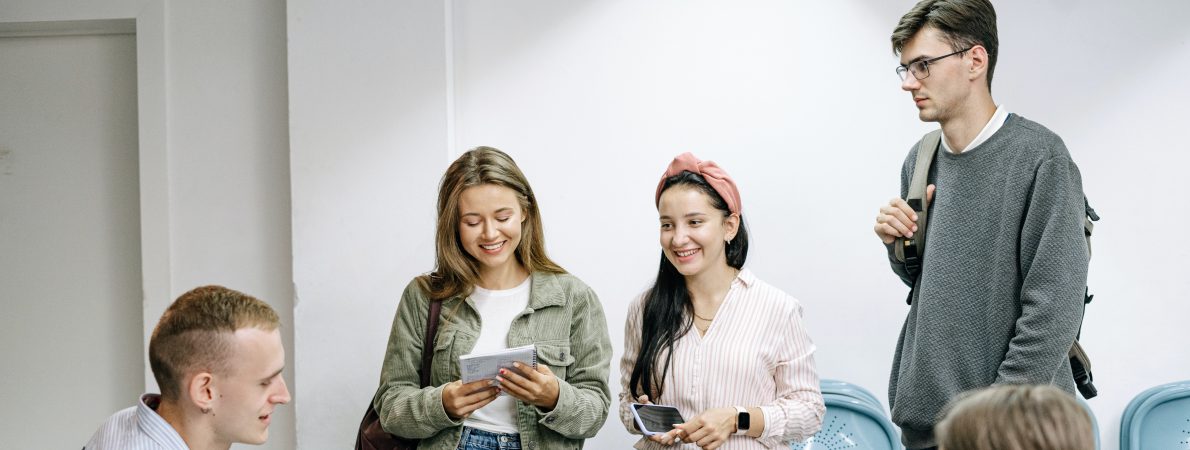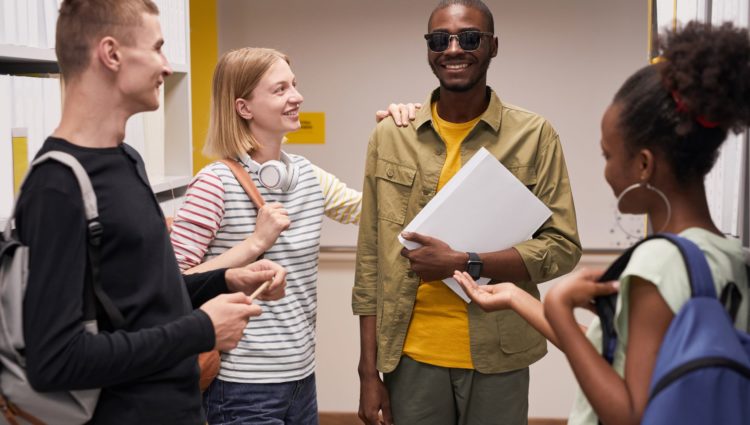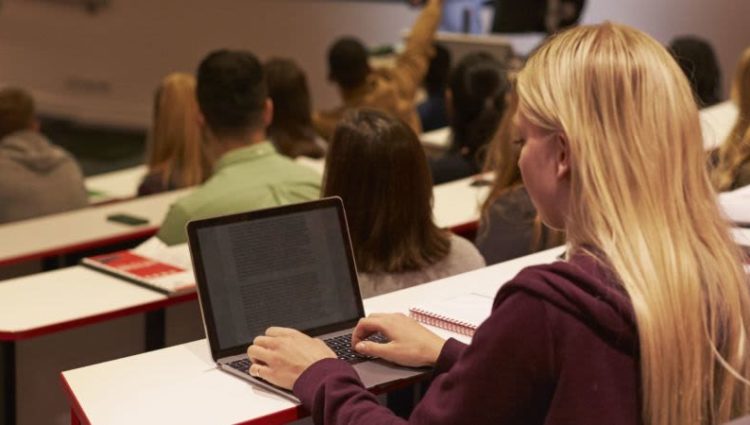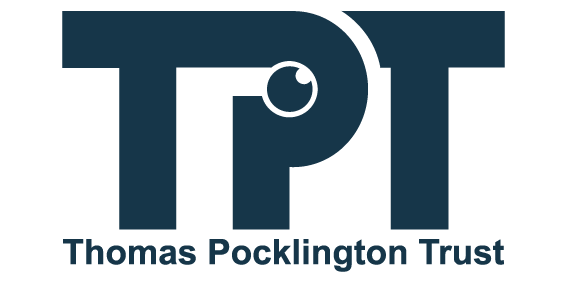Getting the right professional support at university as a blind or partially sighted student is crucial to helping you access your studies in full. Disabled Students’ Allowance (DSA) can provide funding for this support, known as non-medical help or NMH support.
This guide will talk you through what kind of NMH support is available, how to arrange this support, and what to do if things go wrong.
What is Non-Medical Help Support?
Depending on what your needs assessor recommends in your DSA needs assessment, you may be provided with non-medical help support.
NMH support is provided for academic related activities such as navigating campus, lecture notetaking, or exam scribes. This support will be funded through DSA. Payment will be made directly to the helper or the agency they work for. You will be allocated a certain number of hours for this support, depending on the requirements of your course.
What Kind of NMH Support Is Available?
The NMH support you might need will depend on your vision impairment and the type of course you are studying. Below you can find information on the different types of NMH support available through DSA or your university. Or you can visit our The Professionals There to Support You at University page for further details on NMH support roles.
Sighted guide
A sighted guide can help you to navigate independently around campus by providing practical and mobility support. This can include general orientation of the campus buildings, as well as supporting you in carrying around items for your studies like books and IT equipment.
Mobility trainer
A mobility trainer conducts a professional assessment of your campus and then provides a training programme on navigating safe routes to and from your university and around the campus. They usually conduct this training at the start of your course. This is so you can learn to navigate independently.
Find out more about the support you can receive for getting around your university campus here!
Specialist Support Professional
A specialist support professional (SSP) is a qualified teacher trained to work with students with sensory impairments. They can support you to overcome barriers to your learning by helping you to develop strategies, effective planning and preparation. This is so you can get the most out of your studies. An SSP who specialises in supporting blind or partially sighted students is known as a specialist support professional for the vision impaired (SSPVI). To find out further details visit our What is a Specialist Support Professional? resource.
Specialist Notetaker
A notetaker is a specialist professional who makes a comprehensive typed or hand-written record of the content of your lectures, workshops/practical sessions, discussions, group work and tutorials. The notes they create should be provided to you in accordance with your access requirements. To find out further details visit our What is a notetaker? resource.
Scribe
A scribe is a professional who assists you with written tasks relating to your studies. A scribe works under your direction to write what you tell them to, in a variety of situations. This could include writing your answers in assessments and exams, the content of your coursework, essays and assignments. To find out further details visit our What is a Scribe? resource.
Reader
A reader is a professional who reads the content of course material aloud to you to assist you with your studies. A reader can be used in several ways. This could be during live sessions to read out course content, assist you with reviewing your own work/proofing, reading and recording content from course material and supporting you in assessments and exams. Find out further details through our What is a reader? Resource.
Assistive Technology Trainer
An assistive technology trainer is a certified or qualified professional who can teach you how to use your assistive technology in relation to your studies. To find out further details visit our our What is an Assistive Technology Trainer? resource. Or to learn more about assistive technology, and the technology DSA can provide, check out our webpages.
Top Tip!
Not all of the professional support you can receive at university is provided by DSA, which can be confusing. For example, some support will be provided by your university, such as a Library Support Assistant or a Lab Technician. Make sure to speak to your Disability Adviser at your university to understand what other non-medical help support the university can provide beyond DSA. We also have a handy resource, The Professionals There to Support You at University which explains these professional roles further.
Arranging Your Non-Medical Help
Once you have had your needs assessment, you will be sent a DSA 2 letter by the Student Loans Company (SLC). This letter details what non-medical help you are entitled to, and which provider will deliver your NMH support. You may be allocated more than one provider. So it is always important to check the DSA 2 letter thoroughly to know who to contact. You will be expected to contact your provider to arrange the NMH support.
If you have any difficulties with arranging the support, you should contact your disability adviser at your university who may be able to help you.
Often, non-medical helpers will ask you to sign a time sheet (either paper or electronic) to verify they have worked with you. This is then sent to SLC by the helper. Missing two or more sessions with your non-medical helper can impact the continuation of support so it is always important to stay in regular contact with them.
What Do I Do If I Have a Problem With My Non-Medical Helper?
If you have any difficulties with your non-medical helper or would like to change them, you should raise this with the provider first. They will speak to the helper on your behalf or arrange a different person to work with you.
Top tip!
Sometimes, it can feel uncomfortable to speak with the person working with you directly about how you would like to receive support. However, it is always good to remember that non-medical helpers are there to support you and understand your access needs. You are the person who knows your needs the best and so practising self-advocacy in these relationships can ensure you get the right type of support for you.
Requesting More Support
You may be able to request additional hours of support with your non-medical helper. You should do this by going to your DSA provider, either StudyTech or Contact Associates, who can arrange this conversation with your needs assessor for you.
In most cases you will need to evidence why further support is required. This could be if your timetable has additional lecture/seminars added or if your sight condition has changed. In such cases, you can ask your disability adviser or a medical professional to provide evidence (such as a letter).
In some situations, DSA will not fund additional NMH hours. This may be because the support is not considered as related to academic activities. For example; open days, extracurricular activities or untimetabled tutorials or study sessions. In such cases, you can speak to your disability advisor at your university to see if there are other options available to you through the university or other means.
Need Support With Your Education?
If you would like further information, advice or guidance about DSA, or anything else relating to studying as a blind or partially sighted student, please contact our Education Information Advice and Guidance Service.







